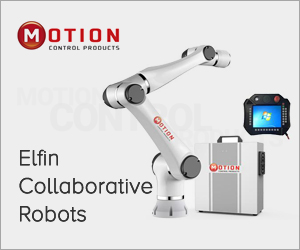Ethical AI in Action: How Robotic Companies Navigate the Future of Automation?

Introduction
In the era of rapid advancements in Artificial Intelligence (AI), intelligent robots are revolutionizing industries worldwide. However, alongside the myriad benefits that AI-powered robots bring, ethical considerations loom large for robotic companies. This article delves into the ethical challenges these companies encounter while developing AI-powered robots and emphasizes the crucial role of responsible AI in creating a sustainable and ethically-driven future.
The Rise of AI-Powered Robots
AI technologies have witnessed rapid advancements, particularly in machine learning and deep learning, propelling the emergence of AI-powered robots with extraordinary capabilities. These robots possess the capacity to learn from data, adapt to changing environments, and autonomously perform intricate tasks. Across diverse industries, including manufacturing, healthcare, transportation, and customer service, AI-powered robots are being increasingly deployed, ushering in a transformative era that redefines conventional work processes and drives efficiency to new heights.
Ethical Challenges Faced by Robotic Companies
1. Privacy and Data Security
Robotic companies encounter significant ethical challenges, starting with privacy and data security. AI-powered robots rely on extensive data collection to enhance decision-making and optimize performance. However, this raises valid concerns regarding individual privacy and misuse of sensitive information. To address these concerns, robotic companies must establish robust data security measures that safeguard user data from unauthorized access and breaches. This will ensure data protection and user trust.
2. Bias and Fairness
Another significant ethical challenge faced by robotic companies is the issue of bias and fairness. AI algorithms, while powerful, can inadvertently perpetuate biases present in the data they are trained on. As a consequence, these biases can result in unfair treatment and discrimination against specific individuals or groups. To uphold ethical standards, robotic companies must remain vigilant in identifying and rectifying biases in their AI systems. By doing so, they can ensure fairness and equity in the applications of their AI-powered robots, promoting inclusivity and equal treatment for all users.
3. Autonomy and Accountability
As AI-powered robots become increasingly autonomous, they may face situations where they need to make critical decisions with significant consequences. It raises questions about who is accountable if something goes wrong. Robotic companies must establish clear accountability mechanisms to ensure that responsibility is appropriately assigned in such situations.
4. Impact on Employment
The deployment of AI-powered robots in the workforce has sparked concerns about job displacement. While robots can enhance efficiency and productivity, they may also replace human workers in certain tasks. Robotic companies should consider the socio-economic implications of robotization and explore ways to address workforce transition and upskilling.
The Importance of Responsible AI
Responsible AI holds paramount importance in the development and deployment of AI-powered technologies. It encompasses ethical considerations, transparency, fairness, accountability, and safety to ensure that AI benefits society without causing harm or perpetuating inequalities. For robotic companies, embracing responsible AI practices becomes crucial not only for building public trust but also for fostering long-term sustainability in their operations and ensuring a positive impact on society as a whole.
Ethical Frameworks for Robotic Companies
Several ethical frameworks and guidelines have been proposed to guide the development of AI-powered robots. For instance:
1. IEEE Ethically Aligned Design
The Institute of Electrical and Electronics Engineers (IEEE) has developed the "Ethically Aligned Design" document, which provides guidelines for ensuring that AI technologies are designed and implemented with ethical considerations.
2. Asilomar AI Principles
The Asilomar AI Principles focus on research priorities and guidelines for safe and beneficial AI development, emphasizing cooperation among companies, researchers, and policymakers.
Case Studies
To illustrate the significance of ethical challenges, let's look at two case studies:
Case Study 1: Autonomous Vehicles and Moral Dilemmas
Robotic companies developing autonomous vehicles face moral dilemmas regarding how these vehicles should act in unavoidable accidents. Decisions about protecting the vehicle's occupants versus minimizing harm to pedestrians raise complex ethical questions that require careful consideration.
Case Study 2: AI-Powered Hiring Systems
AI-powered hiring systems have the potential to introduce bias and discrimination in the hiring process. Several companies have faced criticism for biased hiring practices due to their AI algorithms. Responsible AI practices are crucial to ensure fairness in employment opportunities.
Collaboration and Regulation
Addressing the ethical dilemmas of AI-powered robots requires collaboration between robotic companies, researchers, policymakers, and the public. Transparency and openness in discussing ethical considerations are essential in building trust and understanding the societal impact of AI.
Government regulations also play a significant role in guiding the responsible development and deployment of AI-powered robots. Policymakers must work closely with robotic companies to establish ethical guidelines that protect the public interest and promote the adoption of responsible AI practices.
The Future of Ethical AI-Powered Robots
As AI technologies continue to advance, ethical considerations will remain at the forefront of robotic development. Robotic companies that prioritize responsible AI will not only mitigate risks but also gain a competitive advantage by establishing a positive reputation and earning the trust of consumers and stakeholders.
Ethical Considerations in AI Development
In the dynamic landscape of AI development, ethical considerations play a crucial role in shaping the future of robotics. As AI-powered robots become more integrated into our daily lives, it becomes imperative for robotic companies to proactively address the ethical challenges that arise.
A major apprehension surrounding AI-powered robots revolves around the potential invasion of privacy. Given their capacity to collect extensive user data, it is imperative for these robots to adhere to stringent data protection standards and obtain explicit user consent for data usage. To safeguard user privacy, robotic companies must implement robust encryption, data anonymization techniques, and transparent data usage policies, ensuring that user information remains secure and confidential.
Addressing bias and ensuring fairness in AI algorithms is equally important. Biased AI systems can perpetuate societal prejudices and exacerbate inequalities. Robotic companies must strive to diversify their development teams, conduct rigorous bias testing, and incorporate fairness measures into their AI models. Transparent and interpretable AI systems can help identify and rectify bias-related issues effectively.
The rise of AI-powered robots also raises questions about accountability and the potential consequences of autonomous decision-making. Establishing a framework of responsibility is crucial, and it should encompass both the AI developers and the companies deploying these robots. Additionally, human oversight and intervention in critical decision-making processes must be ensured, particularly in applications where lives may be at stake, such as autonomous vehicles and medical devices.
The impact of AI on the workforce cannot be overlooked. As robots take over certain tasks, job displacement may occur, leading to economic and social challenges. Robotic companies should collaborate with policymakers and labor experts to design strategies for reskilling and upskilling the workforce, ensuring a smooth transition to the era of automation.
Promoting responsible AI requires collective efforts from the entire AI ecosystem. Collaboration between industry players, academia, government, and non-governmental organizations fosters an environment where ethical guidelines are developed, shared, and continually improved. Open dialogue and knowledge-sharing on ethical practices can drive the development of a global standard for ethical AI.
Conclusion
In conclusion, as robotic companies continue to push the boundaries of AI-powered robots, they must remain committed to ethical considerations. Embracing responsible AI practices not only mitigates risks but also paves the way for a future where AI contributes positively to society's well-being. By addressing privacy concerns, mitigating bias, ensuring accountability, and collaborating with stakeholders, robotic companies can lead the way in creating a sustainable and ethical future for AI-powered robotics. As technology continues to evolve, ethical considerations will remain a critical compass, guiding the trajectory of AI development toward a brighter and more equitable future for humanity.







